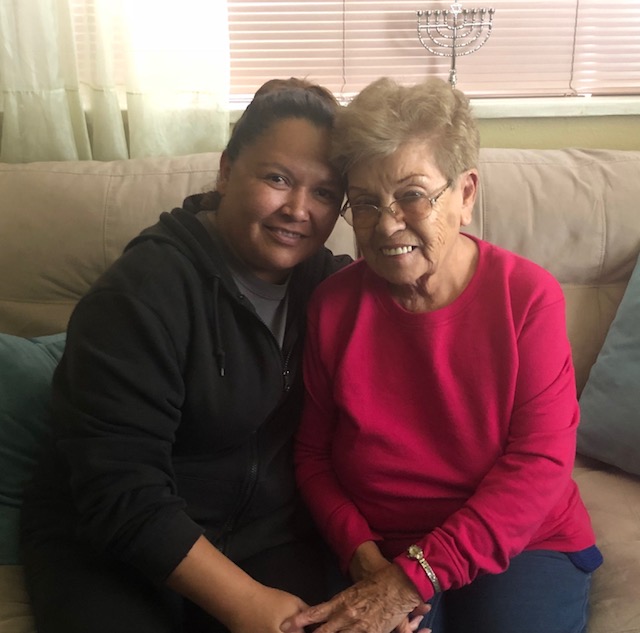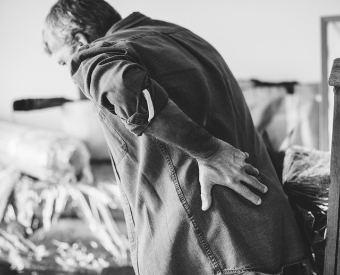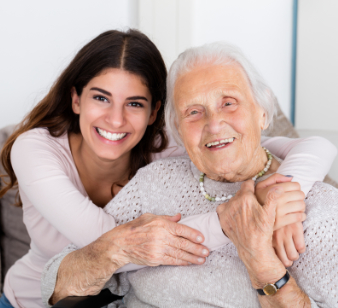Taking care of our aging loved ones or clients is very fulfilling. It is rewarding to give back to the generations that has cared for and paved the way for us. Realistically however, particularly if you are caring for a loved one, it can be easy to neglect yourself and your own needs. To continue providing your loved one or client with the support they need, it’s wise to assess your own well-being from time to time. To help you do that, here are 5 warning signs that you might be experiencing caregiver burnout. You feel exhausted even after a good night’s sleep. Of course, you might not feel like you can run a marathon each day. But you should feel like you have gotten adequate rest to physically and mentally carry out the day’s activities. Exhaustion might seem to be a ‘normal’ part of the life of a caregiver. But it definitely does not have to be. You get sick easily. An immune system functions well when the body gets sufficient rest, good nutrition and other forms of proper care. If you are catching colds or facing other types of illnesses frequently, it could be a sign that you are overextending yourself. It becomes hard to experience feelings of joy or excitement. Caring for a loved one is a gratifying experience. But over time, that joy and contentment can fade. And it’s not because that loved one is any less dear to the caregiver. It is the sad result of pushing past one’s reasonable limitations. This lack of joy can also extend to other areas of life. Meeting friends for dinner or outings are a thing of the past. Most full-time jobs limit the amount of leisure activity that can be enjoyed. However, if time for recreation has slowly dwindled into non-existence, you and your loved one won’t be able to benefit from ways taking time for yourself can revive and refresh you. Your food consumption is too little or too much. Stress often leads to eating too much. Also, being too busy can cause caregivers to skip meals. Either of these habits comes with their own consequences, and it’s often not simply a matter of being overweight or underweight. This is not meant to be an exhaustive list of all signs of caregiving burnout. But these are 5 of the most common indications. Because you are so diligent about giving your loving to your loved one or client, you may not even realize you are experiencing burnout until you face extreme emotional exhaustion or feeling as if you are coming to a breaking point. So take these and other warnings to heart. Understandably, it might cause you to feel a bit guilty for wanting to improve your own quality of life. But finding practical ways to do so will not only improve your days, it will in turn improve the quality of care your loved one receives. So it is important to recognize the warning signs before you jeopardize your health, well-being and caregiving abilities. Whether you believe you are already experiencing caregiving burnout, or you are heading in that direction, Elderlink Home Care Inc. can help. We have proudly served the Denver Metro area for 30 years. Since 1988, we have provided excellent in-home care to thousands of satisfied seniors in the Denver area. We have received many positive testimonials from current and past clients. For more information about in-home care and how Elderlink can possibly help, please contact us today.
Make an Appoinment
LATEST NEWS
Elderlink Home Care, Inc. is excited to announce the winner of our ‘Celebrating 30 Years’ grant: Mrs. Cecilia Dalton! Mrs. Dalton was nominated by her granddaughter, Davida Duran (pictured). Mrs. Dalton, 85, was born in Sopris, Colorado and has lived in Colorado her whole life! She spent the early years of her life raising her five children. Mrs. Dalton now has 20 grandchildren; including one grandson she has raised since he was baby and still lives with her. She worked at Denver Health for a number of years before retiring. The most important things in Mrs. Dalton’s life are time spent with her family and her church. Mrs. Dalton was very close to her sister, who recently passed away. When asked what her plans were for her $300, she said she would be putting it directly into her savings account! Congratulations Mrs. Dalton!
High cholesterol can be a serious health problem for many seniors. It significantly raises the risk of heart disease, stroke, heart attack and other serious health problems. Fortunately, there are several simple steps that can be taken to lower bad cholesterol levels, raise good ones and help seniors remain healthy! Make Simple Dietary Changes Let’s face it: Major diet changes are never easy. However, by encouraging your loved one or client to make a few simple changes, their cholesterol levels can be lowered–and often, they won’t notice what they’re missing. Try some of these strategies: Eat fatty fish like salmon, mackerel and tuna Try whole grain products instead of their processed alternatives Avoid trans fats Eat fewer processed foods Minimize refined carbohydrates Add in foods rich in antioxidants, like fruits and vegetables Incorporate Simple Activities When your client or loved one isn’t moving, it’s easier for bad cholesterol to build up, hardening their veins and making it difficult for them to get healthier. Regular activity, on the other hand, can decrease bad cholesterol! Try some of these simple activities: Take up dancing! Classes together can be a great bonding experience. Get out and take a walk several times a week. Go for a swim. During the summer months, swimming outside is a fun, free exercise. Even during the winter, many gyms offer indoor water aerobics programs. Start gardening. Growing pretty flowers or fruits and vegetables is both healthy and invigorating! Find a class at your local gym or senior center. There are plenty to choose from and they’re sure to find something appealing! Decrease Portion Size There are a number of foods that are very healthy and full of cholesterol-fighting properties. Unfortunately, many of them are also high in calories. Whether you’re changing your senior’s diet to incorporate more good fats or they’re indulging in a favorite treat, practicing portion control is the best way to ensure that the treatment will be healthy, rather than causing more health problems down the road. Encourage Socialization Regular social contact with others has a higher impact on the body’s overall health–including cholesterol levels–than giving up smoking. If your loved one is struggling with high cholesterol levels, consider looking for more ways to get them out and about, socializing with loved ones. This could include: More family time! Take vacations together, plan family events, or just get together and hang out. Getting involved with a local church or charity. Spending more time at the local senior center, engaging in activities they offer. Increased socialization won’t just help with cholesterol levels. It will also help your senior loved one live longer and enjoy a fuller, happier life–so make sure that socialization is an on-going priority. Laugh Often Laughter is known to give you a healthier heart. It raises the levels of good cholesterol in your blood, decreases stress, and even offers an immune system boost! Watch funny movies or read funny books with your client or loved one. When you’re not around, encourage them to engage in these pastimes on their own as well. Drop the Bad Habits As your loved one approaches their senior years, it’s time to think about what those bad habits are really worth–most notably, smoking and drinking. Both regular alcohol consumption and a smoking habit can have a negative impact on cholesterol levels, leaving your loved one struggling to get their health under control. Simply giving up those habits, on the other hand, can keep them around longer. Follow Doctors’ Recommendations If your loved one has been prescribed a medication for high cholesterol, it’s important that they take it exactly as prescribed! Their doctor is monitoring their cholesterol levels and will adjust the medication as needed. Many people believe that as their cholesterol drops, they no longer need the medication. Unfortunately, this can simply complicate the issue and lead to a greater need for medication later on. Dealing with high cholesterol in a loved one isn’t easy, especially with all the fears it brings up. If you need more help caring for your senior loved one, contact us today to learn how we can help.
Sleeping patterns change as people age. In fact, one study has shown that the majority of older adults experience some symptoms of sleep disorders, demonstrating the obvious need to help seniors sleep better. There are many reasons for this. Illnesses and their corresponding medications can cause sleep disruptions like insomnia or dreams that might affect sleep. Even something as positive as retirement can impact the quality of someone’s sleep because suddenly a lifetime routine is thrown off balance. A poor night’s sleep can lead to daytime fatigue and possibly more serious issues. The Centers for Disease Control and Prevention explains that lack of sleep contributes to impaired judgment and chronic health conditions like diabetes, high blood pressure, obesity, and heart disease. If your aging loved one or client isn’t sleeping well, there are a few simple things that may help. Simple Rituals to Help Seniors Sleep Better at Night 1. Make the Bedroom a Sleep Zone When you use your bedroom for a variety of activities, like browsing the internet, crafting, or watching television, your body doesn’t know what’s expected of it when you go in there. By making the bedroom a ‘sleep-only’ zone, your body knows it’s time to wind down and go to sleep when you’re in there. Choose a comfortable mattress and shades that block the light and help control the temperature so it’s conducive to sleep. 2. Establish a Regular Bedtime Mayo Clinic suggests going to bed and waking up at the same time every day, because, “Being consistent reinforces your body’s sleep-wake cycle.” When your bedtime approaches, your body will know it’s time to sleep. 3. Don’t Drink Alcohol Close to Bedtime Even though that glass of wine may make you feel sleepy, it interrupts your sleep during the night by blocking REM sleep (the most restorative sleep), contributing to breathing problems and causing you to get up to use the bathroom! Develop other evening rituals to wind down, such as reading, meditating or chatting on the phone. 4. Drink Less Liquid at Night Going to the bathroom throughout the night not only interrupts your sleep, but you could also have trouble falling back asleep once you get back in bed. If this is the case, even one nightly bathroom trip can potentially make you lose a lot of sleep. Encourage your loved one or client to slow down the liquid consumption in the hours before bed and of course to go to the bathroom before getting into bed. 5. Wake Up to an Active Day Keep your body moving! Often times, the aging years are less active than the earlier years in one’s life, so help your loved one or client to find activities they enjoy. Getting the recommended amount of exercise per week (two hours and 30 minutes of moderate-intensity exercise and muscle strengthening on two days) has been shown to help with insomnia, restless leg syndrome, and sleep apnea. This could include walking, biking, or dancing. Don’t forget that everyday tasks and enjoyable things like cleaning, gardening, shopping, playing with grandchildren, and more all contribute to an active day that could improve one’s sleep! Getting More Help If these tips don’t work, your parent or loved one should talk to his or her doctor about other options. A good night’s sleep is important for overall physical, mental and emotional health as well as the quality of life. If your parents need extra help at home with activities of daily living, they may benefit from in-home care. A caregiver can help your loved one have an active day and create an ideal environment for sleep. Contact us to learn more about hourly and live-in senior care.
Despite the rising popularity of in-home care for seniors, people still have reservations about bringing a caregiver into the home to care for their aging loved one. Inviting a stranger into your loved one’s home is an area of concern, however, it’s important to understand the misconceptions and truths when it comes to the home care industry. Here’s a closer look at 5 myths and facts to help you separate fact from fiction. Myths and Facts: MYTH # 1: I have no idea who will be coming into my home. FACT: The state of Colorado requires any caregiver working with senior submit to a background check. In addition, ask the agency what their selection process for caregivers is like. Many agencies do extensive screening and interviewing before bringing a caregiver on board and will be able to tell you a lot about the caregiver who will be coming into your home. Elderlink Home Care, Inc. is regulated and monitored by the Colorado Department of Public Health and Environment. This is typical of all home care agencies. All caregivers working with Elderlink Home Care, Inc. are thoroughly screened with an extensive 4-part background check and orientation. Elderlink Home Care Inc. is a highly reputable business; serving metro-Denver for 30-years. MYTH # 2: I have children that will assist me when I need it. FACT: Often times, the adult children of aging loved ones are very involved in their parents care. However, they may have their own busy lives to manage as well. There may come a time when the aging parent needs assistance that the adult child is unable to provide. In addition, having outside help will enable the adult children to focus on the relationship with their parents as opposed to getting overwhelmed with being the primary caretaker. It also offers them tremendous peace of mind, which is priceless. When family members are the primary caregivers, burnout becomes a very real thing. Work and family demands are stressful enough. While many families hesitate to reach out for outside help due to feelings of guilt, often times it is the healthy thing to do. Having outside help allows the family to breathe easier and it reduces stress. It allows for your loved one to have focused care and for the family to manage their lives and preserve their precious and important relationship with their aging parent(s). MYTH # 3: If I need home care, my insurance will take care of it. FACT: Traditional health insurance and Medicare do not cover the costs of non-medical in-home care. Long-term care insurance will usually reimburse for this type of care if you have a policy. It is a common myth that the government will provide and pay for non-medical in-home care if a senior is no longer able to live independently in their own home. However, this is typically not the case. Health insurance or Medicare will typically cover the costs of in-home medical care after a hospitalization or surgery, however, no assistance with the activities of daily living. It is better to plan ahead and do your research in the event you may require some assistance and it is your wish to remain in the comfort of your own home. Seniors who purchased a long-term care insurance policy earlier in life can usually get reimbursed for some or all costs of non-medical home care when they determine it is needed. Typically, if a senior does not have long-term care insurance, non-medical home care is private/self-pay. MYTH # 4: Home care is too expensive, I can’t afford it. FACT: Home care is more affordable than you might think! When compared to the cost of an assisted living facility or nursing home, home care can be a more affordable option for many seniors. The average annual cost of one nursing home resident is $102,565.00. The average annual cost of one assisted living facility resident is $46,200.00 (Genworth Financial). MYTH # 5: Home care is for people who are totally dependent… I don’t need home care, I can do most things on my own! FACT: Caregivers help with a variety of different daily living activities. Some clients may need more help than others, however, the majority of home care recipients are still able to do a lot of things on their own. They have the home care to assist with things that are possibly becoming a little more difficult for them. This helps the client keep their routine and independence. Non-medical, in-home care includes a variety of services. Caregivers are able to assist with basic, more supportive tasks such as light housekeeping, grocery shopping, and transportation. They are also able to care for clients needing more intensive, hands-on care, such as bathing, dressing, and toileting. The type of care and level of care can be customized to meet the needs of the client. ELDERLINK HOME CARE, INC. – Specializing in In-Home Care & Serving the Denver Area In today’s world of “fake news,” it’s important to have a clear understanding of in-home care, the services, and the benefits. Elderlink Home Care, Inc. has served the Denver area for 30 years with a stellar reputation and thousands of satisfied clients. They take great pride in their knowledgeable, compassionate staff and their commitment to quality care. Don’t just take our word for it: check out the testimonials from past and present clients. The pairing process is well-planned by assessing your loved one’s needs and hand selecting a caregiver with the knowledge and skills to meet those needs. Whether it’s a basic task of laundry or a more involved task of bathing, your loved one will feel more at ease in their own home and you’ll feel less stressed knowing they are receiving great care. For more information about Elderlink Home Care, Inc’s services, contact us today. We’ll start working with you to identify the best strategy to get your loved one the care they need.
Elderlink Home Care, Inc. is pleased to announce the winner of our ‘Celebrating 30 Years’ grant; Mrs. Ethel Steward, 90 years young! Mrs. Steward was nominated by her daughter, Deb Lockwood. She was born in Missouri and grew up in Kansas. Her husband, William, was in the Army for over 20 years. This caused Mr. & Mrs. Steward to move around a lot. They have lived in many places all over the world. While living in Tokyo, they welcomed a daughter, Deb, into their lives. Sadly, Mr. Steward passed away in 1978. Their daughter, Deb, was living in Colorado and Mrs. Steward decided to move to Colorado as well. She moved here in 1979 and has been here ever since! She has 3 grandchildren and 3 great-grandchildren. She had a career in banking during her adult life. When she retired from banking, she began working as a child care provider. She definitely kept busy! Ethel isn’t sure what she is going to do with the grant money quite yet, however, she knew she had immediate plans to go to lunch with her daughter, Deb. Congratulations Ms. Steward! If you would like to nominate a senior for our monthly grant, please click here!
Dining out is fun no matter your age. For seniors, it’s a special treat to get out of the house and to enjoy a meal in public where they may see people they know. If you are planning to take your senior parents to dinner, or you are an in-home caregiver taking a patient to dinner, then selecting the right restaurant is important. There are senior-friendly restaurants in the Denver area that offer discounts and deals. Here’s a list of the top 3. The Best Senior-Friendly Restaurants Around Denver 1. Applebee’s Applebee’s offers a senior discount of 15% off total bill for those age 60 and older. Menu items range from delicious steaks to chicken and seafood. Start by sharing an appetizer and if visiting at lunchtime, try one of their lunch combos. Other menu options include pasta and salads. Save room for dessert because it’s hard to say no to Applebee’s butter pecan blondie! 2. Denny’s AARP members are eligible to receive a 15% discount off their total bill every day. A special menu is available for those aged 55 and older. Traditional meals such as country-fried steak and grilled chicken are on the menu. Breakfast items include French toast and omelets. For lunch, seniors can try a grilled cheese and soup. There are several Denny’s locations throughout the Denver area. Thanks to their partnership with AARP, Denny’s remains a popular restaurant for seniors. 3. IHOP IHOP offers an exclusive menu for guests age 55 and older. The menu offers smaller portions of classic dishes including create-your-own omelets and a roasted turkey dinner, all at a lower price. For a healthier option, seniors may enjoy the grilled tilapia. Side dish options range from mashed potatoes and gravy to steamed broccoli. Don’t forget about their selection of pancakes! After all, it is the International House of Pancakes! The Importance of Seniors Dining Out The social interaction of dining out is important in a senior’s life. As many seniors no longer drive, having someone take them out is crucial to limiting senior isolation. Many seniors also live alone and have to cook for themselves, resulting in poor nutrition. Dining out is one way to ensure they are getting a hot and nutritious meal. Finding Time Major holidays are often times of family gatherings at restaurants. Seniors, however, need to get out more than the occasional Mother’s Day or Easter brunch. For their busy adult children, finding the time to take their loved one out to eat is difficult. Work and family commitments are overwhelming yet it is easy to develop guilty feelings about caring for their parents. It is better to ask for help than to try to balance everything yourself. There will be less stress and times together will be more enjoyable if you have help in caring for your senior parents. Elderlink Home Care Elderlink Home Care, Inc. has a professional, caring staff dedicated to providing you with a positive home care experience. Taking their clients out for an enjoyable meal is something our caregivers can assist with. Not only can they take their clients out for a meal if they desire, but they can also help with menu planning and preparation at home. Home care can help prevent your loved one from feeling lonely and isolated. From going to the movies and other recreational activities, you can rest easy knowing your loved one is being properly cared for so you can concentrate on other responsibilities. For more information about in-home care by Elderlink and for a full list of services, contact us today. Elderlink has proudly served the Denver area since 1988. For 30 years, they have provided in-home care for Denver area residents and have received many positive testimonials from current and past clients. Let us help you in ensuring your loved one is properly cared for and getting all of their needs met.
Older adults can experience pain related to many different conditions. Back pain, in particular, has a variety of possible causes, though the most common causes of chronic back pain in seniors are osteoarthritis and spinal stenosis. People over the age of 60 are more likely to experience back pain related to the degeneration of the joints in the spine. The good news is that there are also a variety of simple solutions that may help ease this pain. Sometimes the simplest answer is the best, and in some cases, one little change can make all the difference. For others, a few adjustments to their habits or lifestyle can ease the discomfort. There are other options besides surgery and prescription drugs. Causes of Osteoarthritis Arthritis is a general term that means the swelling of a joint. Osteoarthritis occurs when the cartilage at the joint wears down, leaving the bones without any protection against each other; it is the most common type of arthritis. It can occur at any joint in the body, though it is common in the spine. When this happens, or if the cartilage is chipped or damaged on one side, the injured cartilage or the neighboring bone rub against the bone, causing further injury. This, along with the accompanying joint inflammation and muscle spasm, cause back pain. Causes of Spinal Stenosis This is a narrowing of the bone channel occupied by the spinal cord and nerves, which puts pressure on the nerves and can result in tingling, numbness, or pain. Spinal stenosis is related to osteoarthritis and degeneration of the spine and could show up in the fifth decade of life and continue through the years. When the lower back develops lumbar stenosis, the spinal nerve roots in the low back become compressed and produce symptoms of sciatica—tingling, weakness, or numbness that radiates from the low back and into the buttocks and legs. This often gets worse with activity, which leads people to avoid movement and exercise. Unfortunately, a sedentary lifestyle leads to additional health issues. Symptoms of Chronic Back Pain in Seniors Symptoms of osteoarthritis may include: • Pain that is most pronounced in the mornings and evenings. • Pain that interrupts sleep. • Pain after activity. • Tender when pressed against. • Stiffness and loss of flexibility in the back (being unable to twist or bend comfortably at the waist). Spinal stenosis often features slightly different symptoms: • Leg and lower back pain after even a short walk. • Lower back pain that is quickly relieved by sitting down. • Weakness, numbness, and tingling that moves from the low back into the buttocks and legs (sciatica). In both cases, symptoms ranging from mild to severe may start slowly and increase over time. Simple, Natural Treatments for Chronic Back Pain in Seniors 1. New, High-Quality Mattresses: All mattresses are not created equal! A high-quality mattress can offer huge relief for those experiencing back pain since old, worn-out mattresses do little to support the back or neck. 2. Better Diet: Healthy fats (flaxseed oil, avocado oil, olive oil, etc), fruits, vegetables, nuts, ginger, garlic, oatmeal, and lean protein sources all help reduce inflammation. Meanwhile, dairy, pastries, red meat, alcohol, caffeine, sugar, refined grains, and any heavily processed foods are best to avoid because they increase inflammation in muscles and joints. 3. Yoga: Many older adults have found the practice of yoga to work in their favor, particularly by practicing restorative yoga, a deeply relaxing approach to the traditional practice. Depending upon your range of motion and fitness level, you might also choose a gentle hatha yoga or chair yoga class. Studies have shown positive outcomes like decreased pain, increased the range of motion and a greater sense of well-being for people with back pain. John Hopkins offers more tips for doing yoga with arthritis. 4. Acupuncture: This is a gentle, alternative medicine approach to help ease and treat the aches and pains in aging bodies. Instead of treating symptoms, acupuncture helps treat the pain source naturally, without the use of drugs. 5. Massage Therapy: Pills can cause many side effects and long-term health problems when taken too frequently. Massage therapy improves circulation and reduces inflammation and swelling; studies have shown it to be effective in reducing chronic back pain, which may reduce a patient’s need for pain pills. Treating chronic back pain in the elderly doesn’t always mean resorting to prescribed anti-inflammatory drugs. There are all-natural alternatives that your caregiver may be able to help you try. Contact us today to learn more about in-home senior care.
Seniors will eventually reach a point in their lives when they are no longer able to perform their daily tasks on their own. As they age, they will begin to need assistance with things like meal preparation, mobility, and personal care so it is important to find the best senior care services available near you. The elderly population is growing and experts say aging in place is most often their wish. In fact, 80 percent of older adults live independently in their own homes. As they age, seniors’ physical and cognitive condition will likely change, making it challenging to perform their daily living activities completely on their own, without any assistance. Steps to Finding the Right Senior Care Services 1. Research your options There are many options available to those looking to secure home care for their senior loved ones. • Home health agencies These are organizations that provide skilled and/or medical in the home. Most seniors who need assistance with basic daily living activities do not necessarily require the services of a home healthcare agency. The services of a home care agency is typically what is needed to allow them to remain in the comfort of their own home. They are also more affordable than home health care agencies. • Hospices Hospice is a healthcare option for individuals who need end of life care. Patients who receive care through hospice usually are suffering from a terminal illness and have been given a prognosis of 6 months or less to live. Hospice care focuses on comfort and quality of life, rather than life-saving medical treatments. • Home Care Agency A home care agency provides sends caregivers into the home to assist with activities of daily living, such as; personal care, light housekeeping, meal planning and preparation, companionship, medication reminders, etc. 2. Choose between home care and an assisted living facility More and more, seniors are choosing to live independently at home – “age in place.” In fact, the AARP reports that approximately 90 percent of seniors intend to stay home as they age. Seniors who are able to do many things on their own but find some tasks to be problematic, are good candidates for in-home care service. However, those who have severe medical needs, or are at risk of harm or injury, might best be served in a skilled nursing facility. 3. Assess your budget Medicaid and traditional health insurance typically does not cover the cost for home care services. They will cover the cost for hospice care and sometimes in-home medical care if the individual qualifies. It is important to determine what – if any – costs there will be associated with the care you decide to get for your loved one. Long term care insurance will cover and/or reimburse the insured for non-medical in-home care. 4. Call the agency’s offices Once you narrow your choices down, call the agency and ask them about their services. Make sure you get a warm feeling that they are experts in their field. This will help you get a good idea of their experience, quality and standards. 5. Understand how the agency selects their care givers It is crucial to ensure your loved one is being cared for by excellent care-givers 6. Understand which specific services are offered by the agency This will help you to ensure that your senior’s needs are all met adequately. 7. Check the availability of the agency’s caregiver(s) Are they going to be consistently available to provide coverage for the days and times your loved one needs it? What about future availability in the event that your loved one’s needs change? Is there an up-front cost or deposit? A long-term commitment? What if there is a personality mis-match? These are all good questions to ask up front so there are no surprises down the road. The staff at Elderlink Home Care, Inc. is always working as a team to provide our clients with the best possible in-home care experience. Call us today to see how we can help you and your loved one.
As your parents age, it can be difficult to watch them struggle with tasks that were once easy for them. Taking out the garbage or loading the dishwasher suddenly takes much more effort and time than it once did. 65% of seniors between 60-70 easily live independently but only 43% of those above 70 years old can actually manage independent living. This does not mean they need to move residences—most wish to remain in the comfort of their own homes. Studies show that over 80% of seniors wish to remain in their own homes while they age, regardless of their physical condition. According to AARP, 90% of seniors plan to stay in their home at least 10 more years. They may need additional help with their day to day as they age, but how much? When considering your parents’ living needs, it’s important to understand the differences between in-home care and nursing home services. 5 Reasons In-Home Care May be the Better Choice for Your Aging Loved One 1. Friends and family can be more involved Your parents may not need 24-hour support. They may simply need help with things like bathing, light housekeeping, or meal preparation. Home care for seniors offers you the flexibility to hire a caregiver part-time, full-time, or 24 hours a day depending on the level of care they need. Care is very personalized at home. Your loved one will also receive one-on-one attention and care. This is tremendously beneficial for seniors. They can adjust to one person instead of several different caretakers and staff members at an assisted living or skilled nursing facility. 2. Flexibility to customize with caregivers Your parents may not need 24-hour support. They may simply need help with things like bathing, cleaning the house, or cooking meals. Home care for seniors offers you the flexibility to hire a caregiver part-time, full-time, or 24 hours a day depending on the level of care they need. Care is very personalized at home. This is tremendously beneficial for seniors. They can adjust to one person instead of several nurses and doctors coming in and out of their room. 3. Familiar surroundings maintain calmness Uprooting seniors who are established and comfortable in the home can be emotionally jarring. Moving is a stressful situation, not a relief, as they must essentially start over which is challenging for seniors. Some facilities don’t have private rooms—your mom or dad may have a roommate that they don’t know. This can be uncomfortable for them. If possible, keeping them at home is best for them mentally. They know what to expect when they walk into the kitchen, living room, or bedroom. At night, they sleep in their own bed that that they’re comfortable in. They know the neighborhood and their neighbors. They have a routine they can maintain in their home. The consistency and control over their surroundings maintain their sense of calm. 4. The freedom to keep their own pets, maintain their familiar routines, and set their own standards. When you move into an assisted living facility or nursing home, you must play by their rules. Often, they don’t allow pets, and if they do only small pets or certain types are allowed. Giving up your pet is an understandably emotionally devastating event. This does not help your parents get better or live out their lives in happiness. Plus, it’s often not fair to the animal. 5. It is more affordable than a retirement or nursing home When compared to the cost of an assisted living facility or nursing home, home care can be a more affordable option for many seniors. The average annual cost of one nursing home residence is $69,715.00. The average annual cost of one assisted living facility resident is $36,372.00. (Source: MetLife Market Survey of Nursing Home & Assisted Living Costs) Seniors who wish to remain in their own homes are able to schedule care around their own needs. For example, 20 hours of home care a week with Elderlink Home Care, Inc., costs approximately $1600.00 per month or an annual cost of approximately $19,200. Taking care of a loved one is a joy and honor. However, you may find that you need additional help and expertise to ensure needs are being met and you are able to manage and maintain things in your own life. If you feel your loved ones need additional care let the experts at Elderlink help. We have a variety of services to fit the needs of your loved ones. Contact us today.










